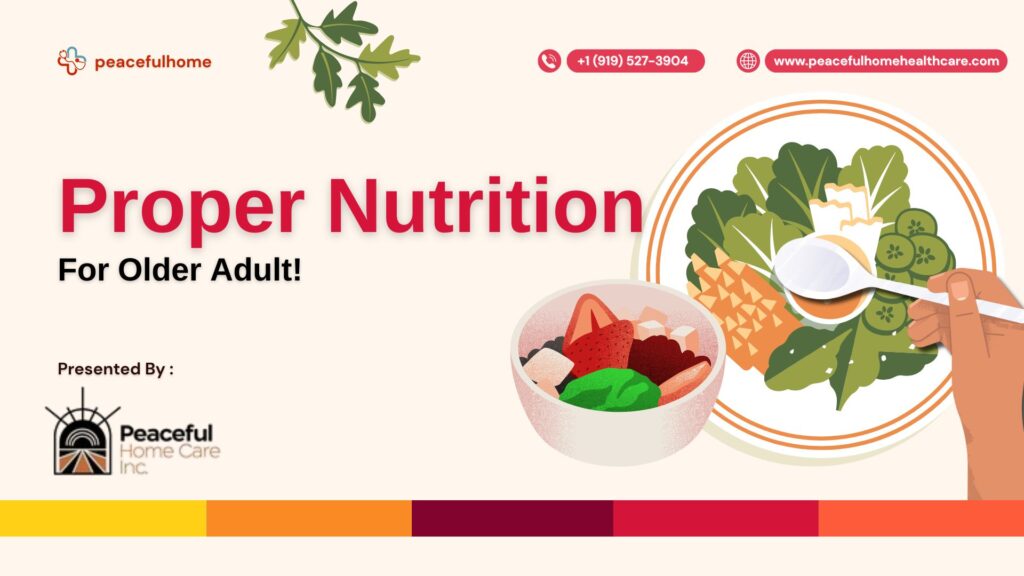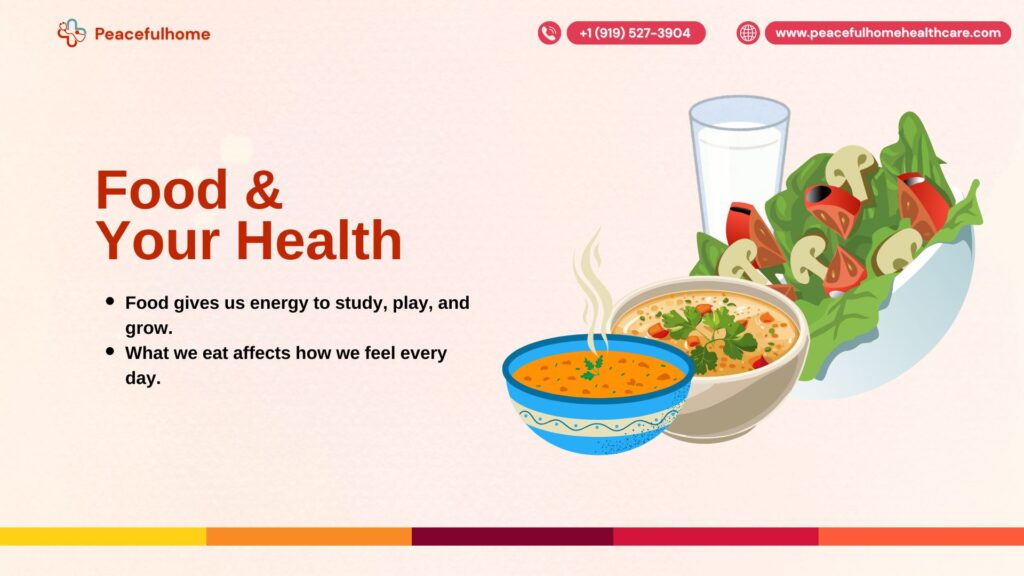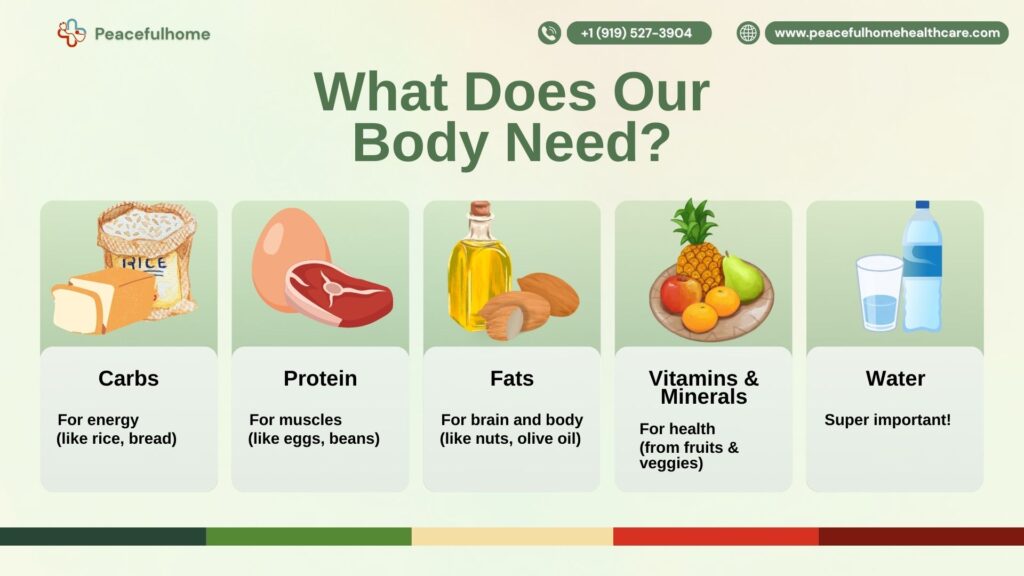
As we age, our nutritional needs change. Seniors require the right balance of vitamins, minerals, and proteins to maintain health, prevent illness, and boost energy levels. Eating well is one of the best ways to enjoy an active and fulfilling life.
Why Nutrition Matters for Seniors
Boosts immunity: A strong diet helps fight infections.
Supports bone health: Calcium and vitamin D prevent osteoporosis.
Maintains energy levels: Proper nutrition reduces fatigue.
Improves brain function: Nutrients like omega-3s support memory and focus.

Key Nutritional Needs for Seniors
Protein – Found in eggs, lean meats, fish, beans, and dairy. Supports muscle strength.
Calcium & Vitamin D – Strengthens bones and prevents fractures. Found in milk, yogurt, leafy greens, and fortified foods.
Fiber – Aids digestion and prevents constipation. Whole grains, fruits, and vegetables are great sources.
Healthy Fats – Omega-3 fatty acids from fish, nuts, and seeds reduce inflammation and support brain health.
Hydration – Seniors often drink less water, increasing the risk of dehydration. Aim for 6–8 glasses daily.
Tips for Healthy Eating

Eat smaller, frequent meals instead of large ones.
Limit processed foods and excess sugar.
Add colorful fruits and vegetables to every meal.
Keep healthy snacks like nuts or yogurt handy.
Conclusion
Good nutrition is a cornerstone of senior health. With the right diet, older adults can boost energy, prevent illness, and enjoy better quality of life. Caregivers should help seniors maintain balanced meals for long-term wellness.




